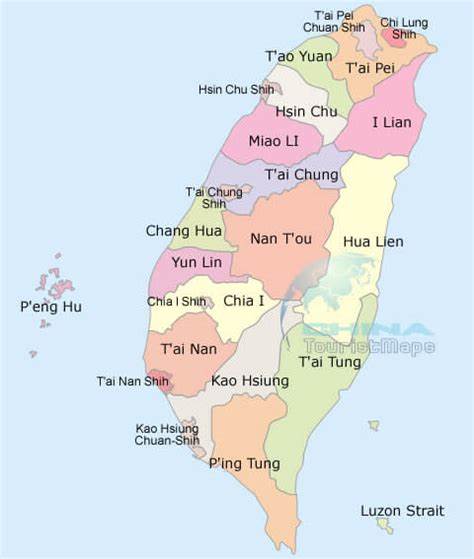Living and working in Taiwan as an Overseas Filipino Worker (OFW) is more than just a job change—it’s a life shift. From adjusting to a new culture to finding your rhythm with expenses, housing, and community, the journey is both rewarding and challenging.
If you’re planning to work in Taiwan or are already there, knowing how to navigate the essential aspects of daily life is a definite advantage. Let’s explore what makes life stable and meaningful while working in Taiwan.
Cost of Living in Taiwan for OFWs: Monthly Budget Breakdown

Taiwan offers a relatively affordable lifestyle, especially with its efficient public services. While salaries for OFWs start around TWD 28,590 (₱52,000), knowing how to manage expenses is key.
Major costs include rent, food, transportation, and utilities. Factory workers often benefit from employer-provided dorms and subsidized meals, easing monthly burdens. Still, prices vary by city—Taipei is more expensive than Taichung or Kaohsiung.
How to Find Affordable Housing in Taiwan as an OFW

Most first-time OFWs live in employer housing, but others may seek private rentals. Dormitories are common in factory jobs, while caregivers might stay with employers.
If you’re searching on your own, platforms like 591.com.tw or local agents can help, but always ask about terms and upfront deposits. Choose housing near transport lines and Filipino hubs for easier daily living.
Monthly Budget Guide for Filipino Workers in Taiwan

Here’s a sample breakdown based on an average worker’s salary:
- Housing: TWD 0–6,000 (₱0–₱10,800)
- Food: TWD 3,000–5,000 (₱5,400–₱9,000)
- Transport: TWD 1,200 (₱2,160)
- Utilities & Misc: TWD 2,000–3,000 (₱3,600–₱5,400)
Planning ahead and using remittance apps with low fees helps maximize your income. Don’t forget to save for emergencies and monthly remittances.
Where to Find Filipino Communities in Taiwan (And Why It Matters)

Feeling at home abroad starts with connection. In Taiwan, vibrant Filipino communities thrive in Taipei, Taoyuan, Hsinchu, Taichung, Kaohsiung, Yilan, and Hualien. These groups offer emotional support, cultural events, religious services, and job advice. Areas like ChungShan District in Taipei (Little Philippines) become weekend homes for OFWs. Being part of a community keeps loneliness away and builds resilience.
When Filipinos meet, it’s more than just socializing—it’s a cultural lifeline. Communities gather to celebrate birthdays, organize sports tournaments, sing karaoke, share home-cooked meals, and attend Simbang Gabi during Christmas. Some form dance groups or offer Tagalog Bible studies. These gatherings restore a sense of normalcy and joy. Being part of a community keeps loneliness away and builds resilience. For many, it’s these simple, shared moments—laughing over pancit or praying together—that make Taiwan feel like a second home.
Frequently Asked Questions
- Do most employers provide housing for OFWs?
Yes, especially for factory and caregiving jobs. Accommodations are often dorm-style or live-in. Always confirm housing arrangements with your agency before deployment. - How much should I budget monthly?
Plan for TWD 8,000–12,000 (~₱14,400–₱21,600), depending on your location and whether housing and food are covered by your employer. - Can I bring my family to Taiwan?
It depends on your visa type. Most work permits for OFWs do not allow dependents, but some professionals may apply for family reunification visas. - Where can I meet fellow Filipinos in Taiwan?
Check Facebook groups like “Pinoys in Taiwan,” visit St. Christopher’s Church in Taipei, or shop at Filipino stores in areas like Taoyuan and Hsinchu. - Is it easy to send money to the Philippines from Taiwan?
Yes. Remittance centers are common in Filipino hubs, and mobile apps like Remitly, GCash, or Western Union offer fast digital transfers. - What should I do if I’m having problems with my employer?
You can contact the Manila Economic and Cultural Office (MECO) in Taipei or reach out to Filipino support groups. Documentation is key. - Are there community events or festivals for Filipinos?
Absolutely! Filipinos gather for Independence Day, Christmas parties, Rizal Day, and sports tournaments—many of which are organized by volunteer groups or churches. - Do I need to speak Mandarin to work in Taiwan?
Not necessarily. Many employers don’t require fluency, but learning basic phrases is helpful for daily tasks, especially in caregiving or factory roles.
Video: A Day in Life of an OFW | Isang Araw sa Buhay ng Factory Worker sa Taiwan
Step into the daily routine of an Overseas Filipino Worker (OFW) in Taiwan and experience the challenges, triumphs, and hard work that define life as a factory worker. This video offers a firsthand glimpse into the dedication required to support loved ones back home, while navigating the realities of working abroad.
From early mornings on the job to moments of reflection and perseverance, many Filipinos will find inspiration in this journey—whether they dream of working overseas, face financial struggles, or simply wish to understand the sacrifices OFWs make.
Watch and see how resilience and determination shape the lives of countless workers striving for a better future. Don’t forget to like, share, and subscribe for more real-life OFW stories!
Conclusion
Working in Taiwan is a chance to grow—not just financially but personally. Whether you’re adjusting to a shared dorm, finding Filipino groceries, or sending money back home, each step is part of a bigger story: one of courage, sacrifice, and hope.
And while the journey can be tough, remember—you’re never alone. Thousands of kababayans have walked this path, and together, we build not just careers but communities.
